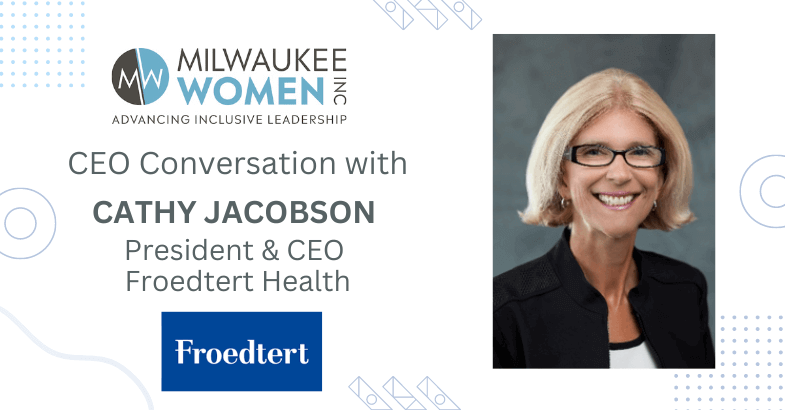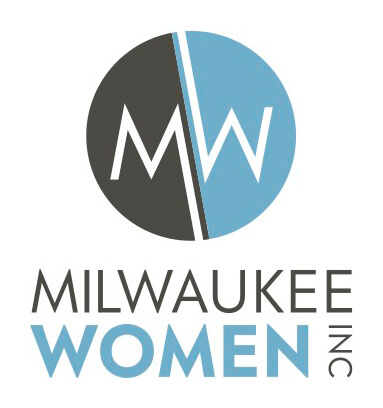
CEO Conversation with Cathy Jacobson
February 28, 2023
Why is gender diversity important to you personally and to Froedtert?
“Our real pledge, first and foremost, is to diversity overall. I think women are more attuned to the value of diversity of thought, diversity of experience, diversity of background, making sure that all those voices are at the table of decision-making. I know so many of us, even today, but certainly those of my age who have been working for 35-plus years, have experienced being in a room where there was a lack of either gender, race, age or disability represented. Sometimes, even the stakeholders weren’t in the room to give insight into the decision that was being made.
You must reflect your stakeholder community, and your workforce. Being in healthcare, we are in a predominantly female workforce. I think that’s what gives us a heightened appreciation for gender diversity underneath the rubric of overall diversity of thought.”
How did Froedtert build its diverse board and executive leadership team?
“It starts from a leadership perspective. If you’re not an advocate, diversity doesn’t happen. I have encouraged my team to look outside their circles, push out and look. It takes effort, intention and advocacy. In the role I’m in I am an advocate for all kinds of diversity. I don’t focus only on gender diversity; I make sure all perspectives have a seat at the table and I’m not afraid to address that.
As Froedtert has grown and become a bigger community asset, we have an obligation to take that voice into the community. So as good as we think we are, we always can do better in terms of diversity and building diversity and inclusion into the organization. We want to be sure our executives at the highest levels are positioning us to do that and are holding us accountable. We are very intentional in terms of explicit goals and communications. Training is important, so we spend a lot of time, effort and communication on doing that.
Our Diversity Council provides broad oversight on all of our diversity initiatives. What they really pushed us on is we need to take that out in the community too. And so that’s where I’ve stepped up my efforts around talking about diversity, being a champion around diversity, specializing in my area of women and gender diversity. We should be an advocate in our community and quite frankly, nationally as well.”
You currently sit or chair on several boards, both local and nationally. How do you help other board members look at diversity the same way, or encourage them to look outside the box?
“I think that right now every board is thinking about diversity of their board and their board makeup. But it is too easy sometimes to slip back to the people we know and bring them forward. I see my role as a voice on the board to say this isn’t good enough. We have a goal to try and achieve more diversity in our board. Should we be looking at this a different way? Should we be looking at our membership criteria a different way?
This is it’s harder than just picking the people who are in power. People in power today tend to be white males, so when you’re sitting on a board, it’s easier because they are very experienced and very qualified to be board members. But we have to break it up a little bit. It doesn’t mean we have to exclusively lean towards diversity, but it means we need to try very hard and be more intentional about bringing more diversity to the board. And I do wield that voice both locally and nationally.”
What specific advice would you give to other board leaders?
“Have very frank conversations at the board level. Every board should have diversity goals. If you’re on a board that doesn’t have them, you need to set them. Number two, as a voice at the board table, ensure that you call out when the choice of candidates doesn’t support advancement of those goals. Bring it to the table. There are always committees that look at and select the candidate, but the board owns the diversity.”
What advice or best practices would you offer to other executives who want to diversify their board or their leadership as a whole?
“I learned this through my history. The first thing that you must do is make sure that the right people are making the selections.
You’re not going to be able to pick diverse people if you don’t know them. Use a search consultant, and quite frankly, a lot of boards have gone to search consultants to make sure they do find candidates that they don’t know.
Try to have diversity on your nominating committee; have women because they know women, have minorities because they know minorities. Be very deliberate, whether it’s a board or executive search, making the search firm commit to bringing forward a diverse slate, that’s absolutely required. And sometimes that means the search consultant must go back out a couple times.
Certain professions have more diversity of background than others, bring that forward. For example, women, women of color, men of color, individuals with financial competency, technical competency and so on. You must dig a little bit farther to find them but it’s worth putting in the effort in to do it.”
Froedtert Health is our presenting sponsor this year, a commitment we truly appreciate and thank you for. Tell us why you and Froedtert support Milwaukee Women inc.
“It’s the preeminent group for executive women. They represent women leaders, they work to get women on boards, they do the research. They get the numbers out. They call out the winners and call out the people who maybe aren’t where they should be with their boards. That’s important work, and it’s the advocacy part.”
Do you have any words of wisdom for women leaders?
“Read the books, lean in and take more risks.
At different points in my career, I’ve been like, oh my gosh, I can’t do that job. I’m not qualified for that job. Until somebody tapped on my shoulder, almost exclusively all white males, and said, yes, you are, you’re going to apply for that job.
There are always women who need to be pushed. I think women are much more humble in talking about their accomplishments than men are. It’s just nature. If you’re invited to a meeting, you belong at the table. Go sit at the table.
And don’t be afraid to disrupt. I remember when I was at Rush University Health System I transferred positions. I had been an executive in a subsidiary organization and then I went up to the main medical center. I was very used to sitting at the table because I was a lead executive. So I walked right in and sat at the table. And I obviously dislodged somebody, there was some rustling. I always sat two down from the CEO, so that’s where I sat.”
